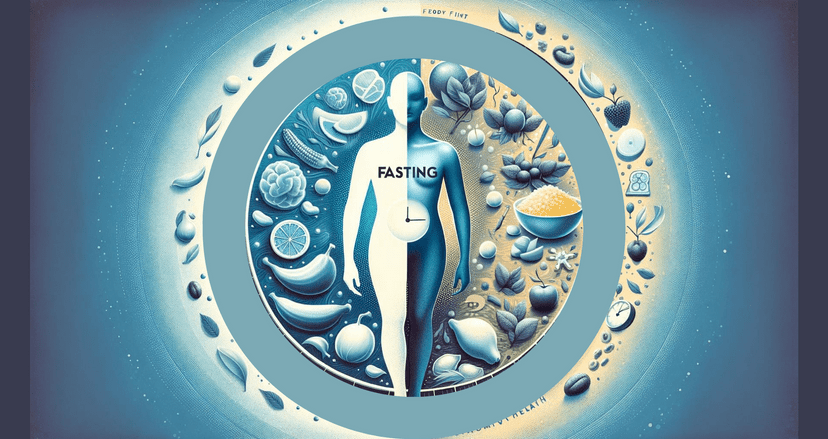How to Fix a Slow Metabolism

Understanding Metabolism and Its Impact
The term metabolism refers to all the chemical reactions that happen within our bodies to sustain life. These processes allow us to grow and reproduce, maintain our tissue structures, and respond to our environments. But beyond these wide-ranging responsibilities, metabolism has a more familiar face; it's the engine that burns the fuel we get from food, converting it into energy.
What Is Metabolism?
Our metabolism comprises anabolic processes, which use energy to construct components of cells such as proteins and nucleic acids, and catabolic processes, which break down complex molecules to release energy. This delicate balance is orchestrated by a veritable symphony of hormones and enzymes working throughout our body.
Together, these processes determine our [Basal Metabolic Rate (BMR)](/glossary/health/basal-metabolic-rate), the rate our body uses energy while at rest to perform vital tasks like breathing and circulating blood. The higher our BMR, the more calories we burn just by existing, and it's this rate that people commonly refer to when they talk about a 'fast' or 'slow' metabolism.
Factors Influencing Metabolic Rate
Our metabolic rate isn't something we're doomed to live with. Various factors can influence it, including:
-
Age: Our metabolism slows about 1–2% per decade after our twenties.
-
Sex: Men typically have faster metabolisms than women because they have more muscle mass, which burns more calories than fat.
-
Physical Activity: Regular exercise can boost your metabolism by building muscle mass.
-
Diet: Certain foods and drinks can boost your metabolism, such as those high in protein or caffeine.
-
Genetics: Genetics can influence your metabolic rate, but the effect is typically minor compared to lifestyle factors.
Understanding these factors empowers us to take active steps in altering our metabolic rate.
Identifying a Slow Metabolism
A slow metabolism is typically characterised by sluggish bodily functions and the inability to maintain normal weight levels. This might manifest as low energy levels, difficulty losing weight despite a healthy diet and exercise, feeling cold all the time, dry skin, or difficulty concentrating. If you find yourself burdened by these symptoms, you might be dealing with a slow metabolism.
But don't despair! Although some causes of a slow metabolism, like aging, are out of our control, many other factors are within our grasp. We can make many dietary and lifestyle changes to give our metabolic rate the boost it needs, which we will explore as we delve deeper into this topic.
Lifestyle Changes to Boost Metabolism
When it comes to the complex process of metabolism, it might seem as though we are at the mercy of our genetic makeup. However, this couldn't be further from the truth. In fact, our lifestyle habits – comprising primarily of dietary adjustments, hydration, maintaining quality sleep, and managing stress – play a significant role in determining our metabolic health.
Dietary Strategies for Enhancing Metabolism
Our body's metabolism is heavily influenced by the food we eat, so the first step towards boosting your metabolic rate is to adjust your diet. Understanding the strategies that can have a lasting impact on your metabolism is vital. Here are a few:
First and foremost, protein consumption is of utter importance as the body burns more calories processing proteins compared to fats and carbohydrates. This phenomenon is called the 'thermic effect of food' (TEF). Eating food causes a rise in metabolic rate due to the calories expended in digesting, absorbing, and processing the nutrients in your meals. Proteins induce the largest rise, increasing your metabolic rate by 15–30%.
Secondly, avoid drastic calorie restriction. It might seem counterintuitive, but a radical caloric deficit can significantly slow down your metabolism and result in muscle loss. Calorie restriction leads to a decrease in metabolic rate, a decrease in thyroid hormones, and an increase in cortisol levels, all of which can lead to metabolic problems.
Then there is the Regular Eating Habit to consider. Avoid skipping meals and maintain a regular pattern to keep the metabolism humming. Contrary to popular belief, eating more often does not increase your metabolism. It's the total amount of food eaten across the day that determines the amount of energy expended during digestion.
Finally, a considerable part of boosting metabolism lies in consumption of metabolism-friendly foods, which include whole foods like fish, lean meats, eggs, legumes, fruits, vegetables, and nuts — basically, anything unprocessed and nutrient-dense is your metabolic rate’s friend.
The Importance of Hydration and Sleep
Proper hydration is key to a healthy metabolism. Around 10% of the calories we burn each day are used to process the food we eat and drink. Water is essential in this process. Drinking enough water can actually speed up your metabolism. Particularly, cold water may be even more effective as the body needs to expend energy to heat it to body temperature.
Quality sleep is another crucial but often overlooked factor. Poor sleep has been linked with significant reductions in metabolic rate, along with an increased risk of weight gain and obesity. During sleep, your body's metabolic function is actively working to repair cells, process information, and restore energy.
Managing Stress to Improve Metabolic Health
Stress management and metabolic health go hand-in-hand. Chronic stress can slow down metabolism and result in weight gain or stagnation. This is because stress triggers the release of cortisol, a hormone that can lead to an array of metabolic issues such as cravings for unhealthy foods, trouble sleeping, and belly fat accumulation. Adopting practices such as regular physical activity, mindful eating, yoga, meditation, deep breathing, and sufficient sleep can significantly help in managing stress levels. Additionally, fostering relationships, finding fulfilling hobbies, and having downtime can create a positive difference.
In conclusion, adopting healthier lifestyle habits can have profound effects on our metabolism. While these adjustments might require time and commitment, the long-term benefits make them an invaluable investment in our metabolic well-being. By incorporating the right dietary strategies, staying well-hydrated, prioritizing sleep, and mitigating stress, the journey towards a healthier metabolism can be a smooth and rewarding experience.
Exercise and Physical Activity for Metabolic Health
Engaging routinely in exercise and physical activities is instrumental in boosting your metabolic rate. These practices facilitate the efficient breakdown of food and other ingested substances into energy, thus fostering effective weight management, adequate blood circulation, bone health, and proper heart function, among other health benefits.
However, it's fundamental to note that different types of workouts have distinct impacts on your metabolic rate. Thus, integrating the right mix of exercises into your routine fosters optimal metabolic health. Let's delve into how strategic physical activities enhance metabolic functionality.
Incorporating Strength Training
Strength training, a physical activity that utilizes resistance to induce muscular contraction, leading to increased strength, size of skeletal muscles, and anaerobic endurance, plays a pivotal role in metabolic health. As your muscle mass increases, your body burns more calories- even at rest, which in turn boosts your metabolic rate.
Research has shown that strength training can help you gain more muscle and increase your resting metabolic rate. For instance, a study published in the Journal of Applied Physiology revealed that resistance training holds substantial metabolic upgrades during post-exercise recovery.
Here's an insight into how it works: Strength training causes microscopic damage to the muscles, referred to as microtrauma. Then, your body makes use of energy to repair these micro-tears, therefore increasing your metabolic rate.
Benefits of [High-Intensity Interval Training](/glossary/fitness/metabolic-conditioning) (HIIT)
Another vital workout designed to improve your metabolism is the High-Intensity Interval Training (HIIT). This practice involves short bursts of intense exercise punctuated by low-intensity recovery periods. Notably, HIIT is time-efficient-- you can burn a lot of calories in a short time.
Research, such as the one published in the British Journal of Sports Medicine, has repeatedly shown that HIIT significantly enhances your metabolic rate, and the effects may persist even after the workout session. What’s even more remarkable is that, compared to other forms of exercise, HIIT could potentially offer superior benefits in much less time.
Consistency in Physical Activity for Long-term Metabolic Health
Ultimately, for sustainable metabolic health, consistency is key. Regular exercise is a proven way to increase your metabolic rate. It also helps to build and maintain vital muscle, which naturally decreases with age. A consistent exercise practice can help maintain a healthy metabolic rate over the long haul.
Let's be clear; the type of exercise is essential, but the consistency of your physical activity matters even more for long-term metabolic health. A study in the Journal of Strength and Conditioning Research shows that consistency in physical exercise enhances overall fitness and health, leading to an improved metabolic rate.
Therefore, it's advisable to incorporate a blend of exercises, including strength training, HIIT, and cardio workouts, into your routine and execute them consistently for optimal metabolic health. Remember that it's not about extreme, sporadic bursts of activity, but regular, challenging physical activity contributes significantly to fixing a slow metabolism.
By understanding how each exercise impacts your metabolism and sticking consistently to your workout regimen, you’ll be on your way to revitalized metabolic health. Remember, every bit of movement counts towards enhancing your metabolic rate, from taking the stairs instead of an elevator to cycling or walking to work instead of driving. Over time, these small changes can lead to significant improvements in your metabolic health.
In Summary
This blog post explored the intricacies of metabolism, detailing its roles and functions in the human body. We delved into how metabolism works and discussed both anabolic and catabolic processes that relate to the Basal Metabolic Rate (BMR). We also examined the factors that can affect our metabolic rate like age, sex, physical activity, diet, and genetics.
Still, a slow metabolism can have various damaging manifestations, but lifestyle changes like dietary adjustments, hydration, quality sleep, and stress management can positively impact our metabolic health. For dietary strategies, consistent protein consumption and regular eating habits without drastic calorie restriction, paired with consuming metabolism-boosting whole foods, are beneficial.
Moreover, regular hydration and good quality sleep have been emphasised as equally crucial for improving metabolic health while managing stress is key, as chronic stress can slow down metabolism.
The role of consistent exercise and physical activities, especially strength training and High-Intensity Interval Training (HIIT), in boosting metabolic rate was highlighted.
To put all that we've learned into action:
-
Evaluate your diet: Make sure it's balanced and rich in protein, and try to avoid drastic calorie restriction. Consume metabolism-friendly whole foods as much as possible.
-
Hydrate regularly: Make it a habit to drink plenty of water daily.
-
Prioritise quality sleep: Ensure you are getting sufficient sleep regularly.
-
Engage in consistent physical activities: Incorporate strength training and HIIT into your routine, but remember that consistency is key here.
-
Manage stress: Look at stress-management activities that you can seamlessly incorporate into your lifestyle, for example, yoga, meditation, or even hobbies that help you relax and unwind.
-
Make small but impactful lifestyle changes: Simple changes like taking the stairs over the elevator, cycling or walking to work instead of driving can contribute significantly over time.
Remember, while the journey may seem long, the long-term benefits make it an invaluable investment in your metabolic well-being. Every bit of effort counts and can lead to significant improvements in your metabolic health.













